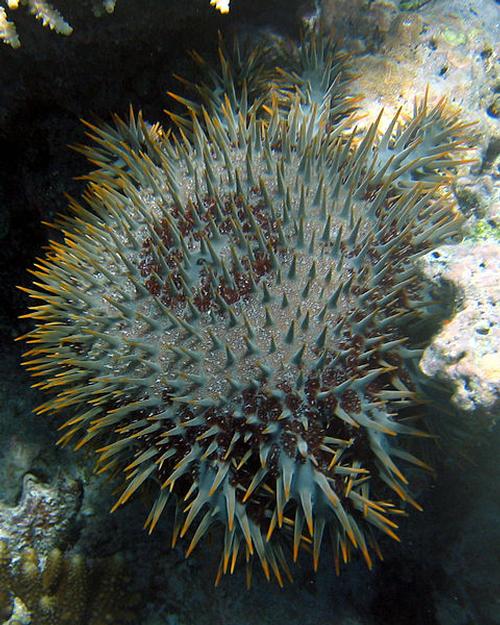
Crown-of-thorns starfish control
by Great Barrier Reef Marine Park Authority 2 Aug 00:24 UTC

Crown of Thorns Starfish © Matt Wright
A coordinated and proactive response continues to protect coral from the impact of crown-of-thorns starfish (COTS). The Reef Authority's COTS Control Program, delivered in partnership with the Reef Joint Field Management Program, is a demonstrated effective tool in protecting coral and supporting the health and resilience of the Reef.
Between July 2024 and June 2025:
- 237 reefs were targeted for surveillance and management
- 107 reefs (45% of those targeted) had sustainable COTS numbers, allowing corals to grow and recover
Active culling is under way at 44 reefs with teams working efficiently to reduce starfish densities. The starfish were detected at 86 additional reefs that have been prioritised for action as field resources allow.
This targeted, science-led effort is critical for preserving coral cover and supporting Reef resilience, particularly in areas where coral communities are already under pressure from heat stress. The Swains Reefs in the Southern Regions and reefs between Port Douglas and Lizard Island that still have significant COTS outbreaks, are current priority areas for control efforts. Work to combat coral-eating crown-of-thorns starfish across the Great Barrier Reef is working even under increasing environmental pressures, according to an assessment by University of Queensland researchers.
Work to combat coral-eating crown-of-thorns starfish across the Great Barrier Reef is working even under increasing environmental pressures, according to an assessment by University of Queensland researchers.
See the research here.